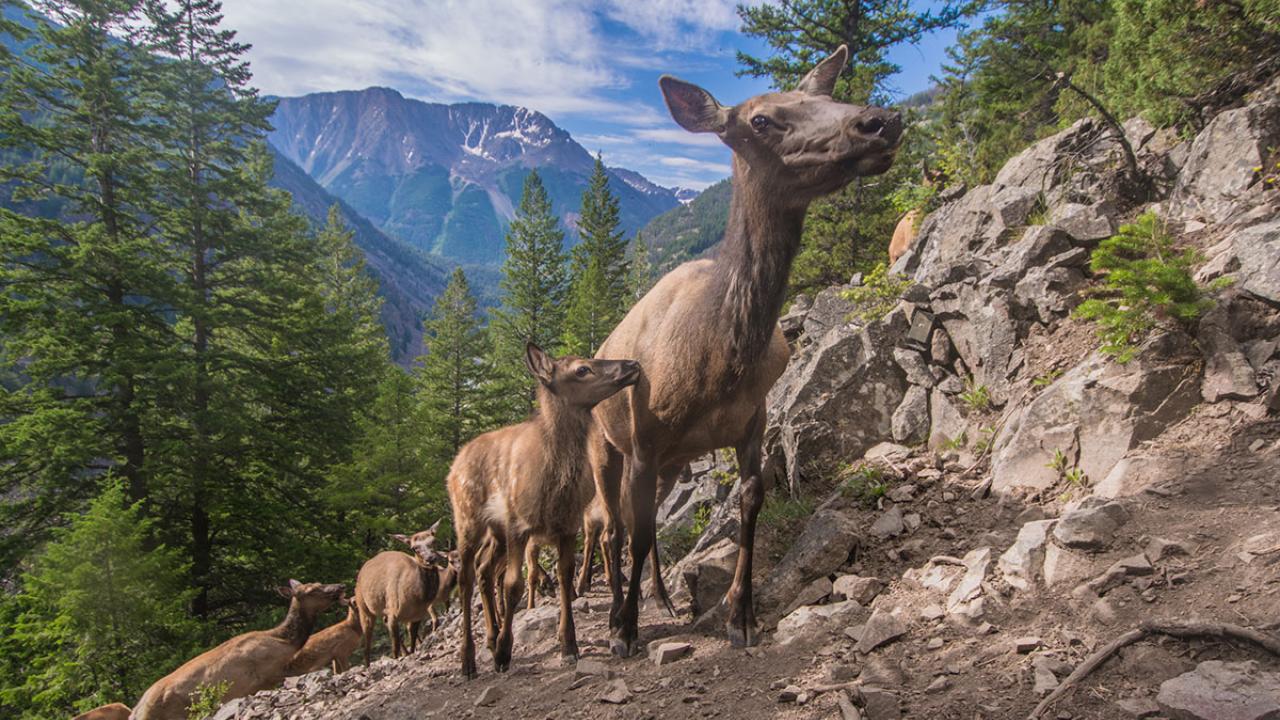
Are Farmers Really Elk?
Bottom line: No, farmers are not elk.
However, could they adapt to climate change like elk?
A new study from UC Berkeley examined how annual elk migrations from valleys to the high country and back again are triggered by proximate environmental cues such as emergence of spring vegetation. Since climate change is shifting the timing and geography of those environmental cues, the researchers expect the elk to shift their ranges in order to adapt. These adaptive strategies can help the elk population keep up with climate change, although there will be ripple effects through the broader ecosystem given the importance of elk in the overall set of ecological interactions in places like Yellowstone National Park.
Could farmers and agriculture follow a similar adaptive strategy? When CEBP researchers have talked to farmers about climate change, farmers will often respond that they are not worried very much about climate change because they have always had to adapt to annual variation in weather. The farmer interviewed in this article about the 2019 extreme floods in the Midwest United States is a good example this "it's just weather" attitude. The farmer doesn't seem to be worried about climate change, even though the extreme flooding is consistent with climate change models and caused major economic damages. Even if the weather is changing, it doesn't matter if it was caused by humans--farmers are confident in their capacity to adapt to those changes. In the short term, such adaptation might include planting a different type of seed for example something that requires a shorter or longer grower season, or is more adapted to higher temperatures. In the long term, perhaps the grower will plant a different crop more suited to the new weather patterns but one that still has a market. This type of adaptive decision strategy is reactive, incrementally adjusting expectations and agricultural practices in response to the growing conditions experienced in the previous year. If such a reactive decision strategy can keep with climate change, perhaps just like the elk, agricultural communities will be able to adapt.
Obviously there is another approach--the farmer could accept that climate change is happening, try to understand how weather patterns are likely to change(e.g.; temperature, growing season length, average and variance in precipitation amounts, extreme events, etc), and strategically think about how to adapt. Such a proactive decision approach may provide more benefits than the "it's just weather" strategy. However, I think the proactive approach is difficult and costly for at least two reasons. There is pure decision cost--it takes time and effort to develop the knowledge needed to understand how growing conditions might change, and the potential options for changing practices or crops. There is also a lot of uncertainty, which people typically desire to avoid. Lowering these decision costs is one of the main goals of climate adaptation programs worldwide. There is also a cultural identity cost--farmers on average are a pretty conservative community (at least in the US) that are less likely to accept the idea of anthropogenic climate change, or the benefits of government policy intervention. Agricultural attitudes towards climate change may be shifting (possibly faster in less-developed countries), but I would still argue that the agricultural sector is fairly resistant to the idea. But if the "it's just weather" approach is adaptive, is it really worthwhile to pay the decision and cultural identity costs required to adopt a more proactive approach? I think this is an interesting question, and at least one good reason for the persistence of "it's just weather".

Disqus Comments